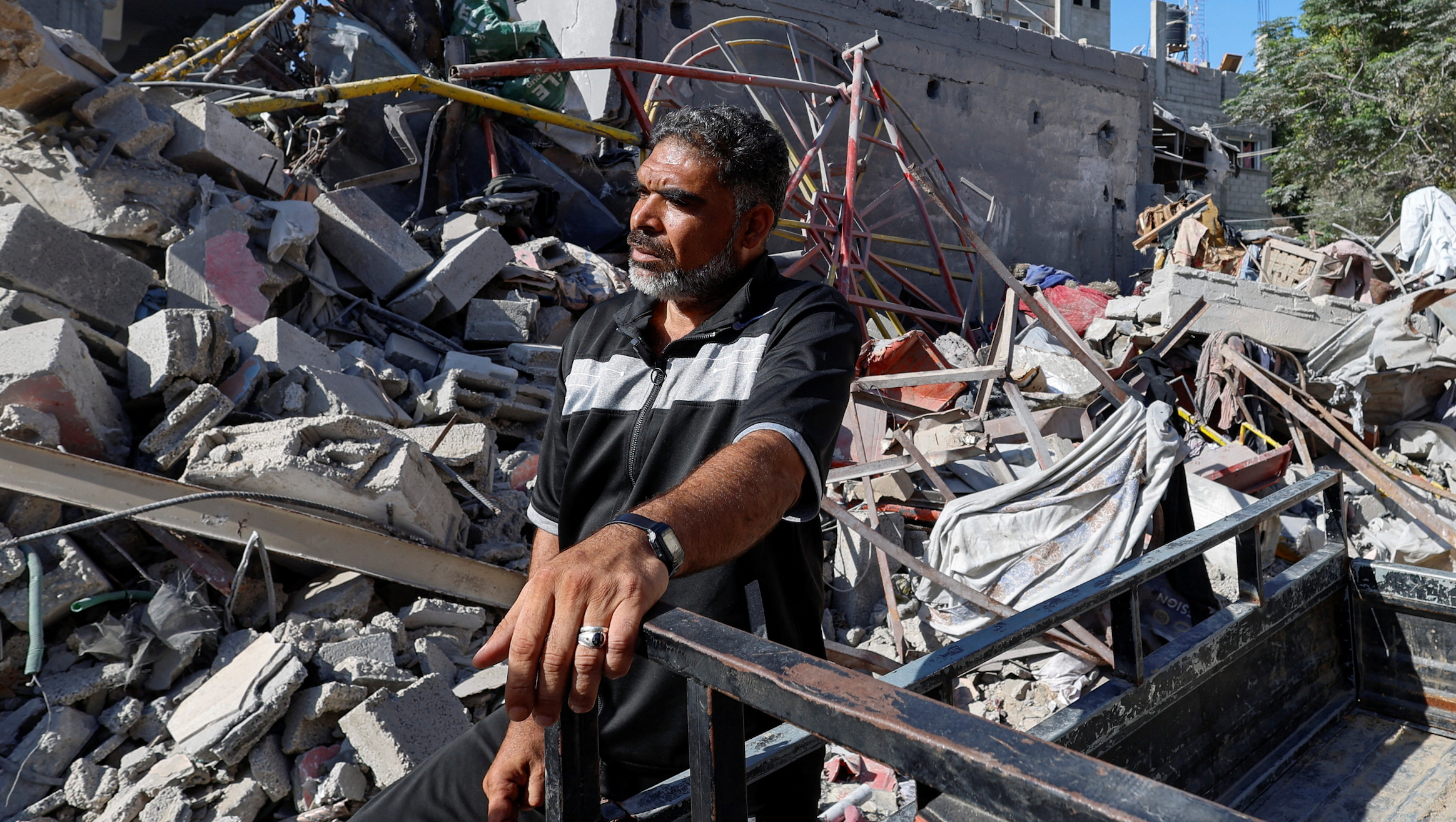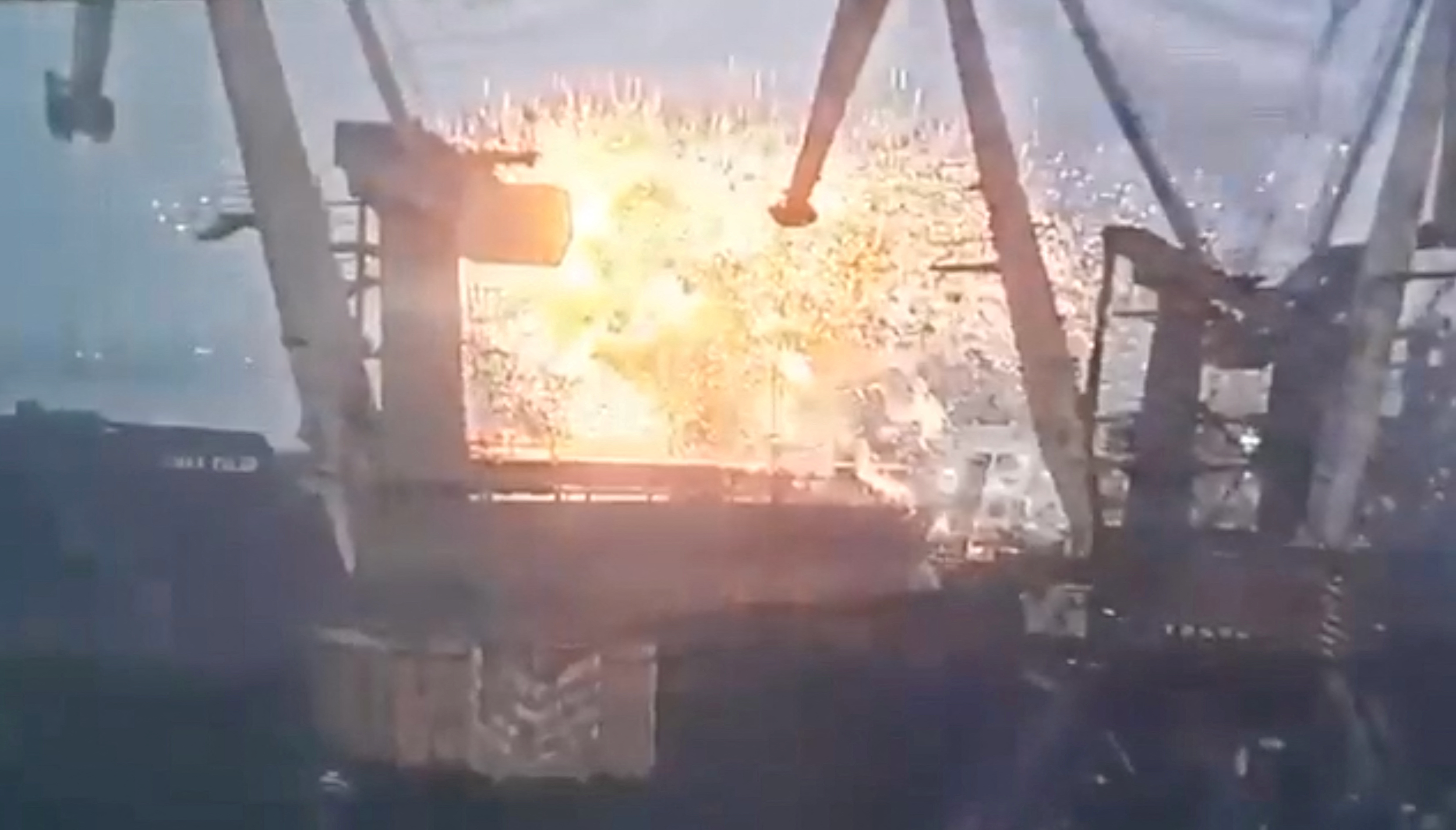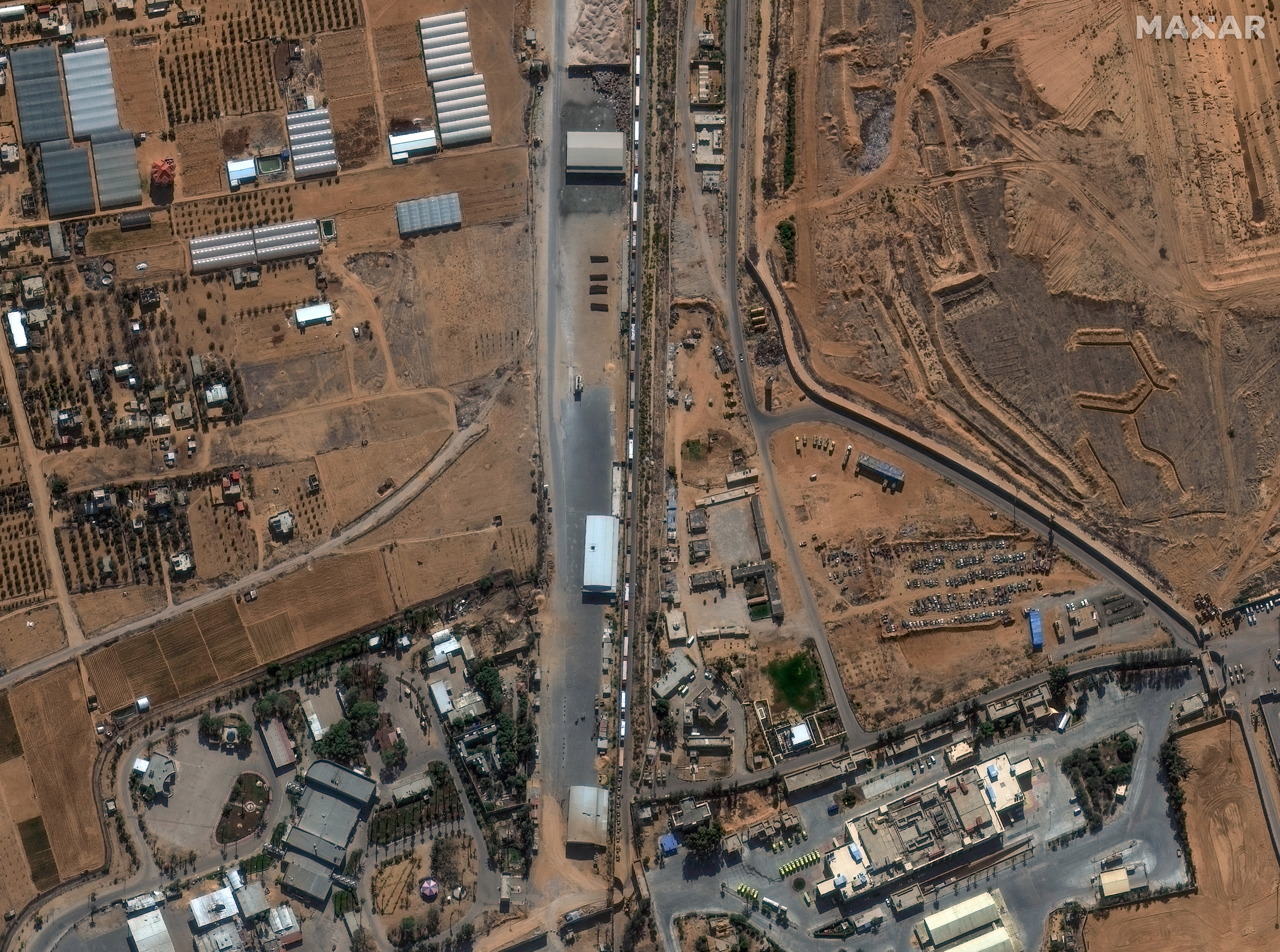
Gaza family loses three generations to Israeli air strike
PHOTO CAPTION: Palestinian Mohammed Hamdan, who lost 35 family members of three generations in an Israeli air strike, rests on a couch near the rubble of his family home that was destroyed in the strike, in Khan Younis in the southern Gaza Strip November 7, 2023. REUTERS/Mohammed Salem
By Nidal al-Mughrabi
GAZA (Reuters) - The Israeli air strike hit Mohammed Hamdan's Gaza home soon after Islam's evening prayer on Tuesday, he said, killing 35 members of his extended family across three generations from Kamal, aged 70, to Rasmi, aged seven.
Hamdan, 50, was buried by his collapsing house and it took an hour and a half to pull him out, he said. He emerged to discover he had lost his daughter Malak, brother Ahmed, his nephew, nieces and many cousins.
"My brother, my nephew and I were sitting down along with another brother just after the prayer. We found ourselves under the rubble," he said, recounting the moment of the strike.
The Hamdan family is one of many in Gaza eviscerated by an unprecedented air and artillery bombardment that has killed more than 10,000 people according to health authorities in the tiny, crowded, Hamas-run enclave.
Israel's military has entirely encircled northern Gaza under cover of a weeks-long barrage that has also pounded southern areas such as Khan Younis, where the Hamdan family lived.
Israel's stated objective is to destroy the Palestinian Islamist group Hamas, whose militants rampaged through Israeli towns on Oct. 7, going house to house as they killed 1,400 people and kidnapped another 240.
For Hamdan, the war has brought an end to all he held dear. "We were raised here, we lived with these children. I didn't imagine that there would be all this destruction," he said.
Khan Younis was established as a refugee camp in 1948 as Palestinians, including the Hamdan family, fled or were forced from their homes during the fighting that accompanied the creation of Israel.
They were never allowed back and the tented encampment became a city of narrow alleyways and concrete apartment blocks under Egypt, then direct Israeli occupation and finally internal control by Hamas accompanied by a tight Israeli blockade.
LOST FAMILY
Over the past two decades, fighting between Israel and Hamas has periodically washed across the enclave, raining missiles and shellfire on to successive generations of the Palestinian refugees, who make up more than half the 2.3 million population.
Through those hard decades the Hamdan family expanded and its Khan Younis home was the centre of its life. "We used to play with both young and old. We used to sit outside during the summer. Sometimes we lit a bonfire. But look now. There is nothing but destruction," said Hamdan.
The brother and nephew Hamdan was sitting with when his building collapsed did not make it, he said.
He emerged to a scene of utter devastation. "I thought it was only us (who were hit). But then I found out it was the whole neighbourhood," said Hamdan. The neighbouring Abu Sita and Abu Sultan families were both mostly killed or wounded, he said.
Israel has denied targeting civilians in its military campaign, but says Hamas fighters often operate within residential areas.
Many of Hamdan's relatives who were not killed were wounded, and he does not know when or if they will emerge from hospital.
"We used to visit each other, sit together, make a fire, eat breakfast together. I used to visit my brother and my sister. Now none remain, no sister, no brother and we won't make a fire, we won’t gather," he said.
He particularly recalled his daughter Malak, 12, and her cousins Tala and Sila. "I used to love them and they loved me. They used to come and play and laugh. I lost them now," he said.
(Reporting by Nidal al-Mughrabi, writing by Angus McDowall; Editing by Crispian Balmer and Alex Richardson)









